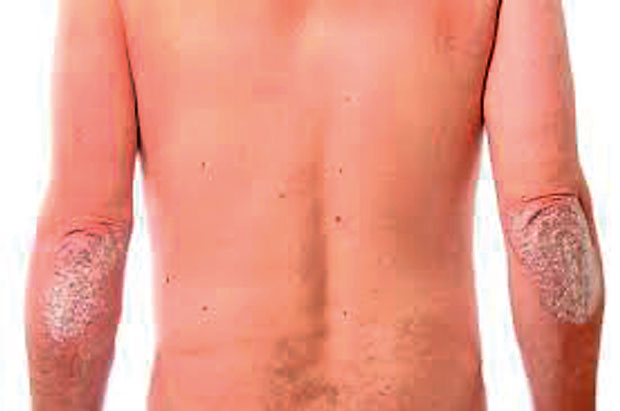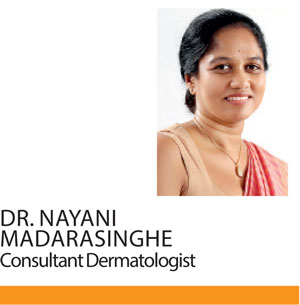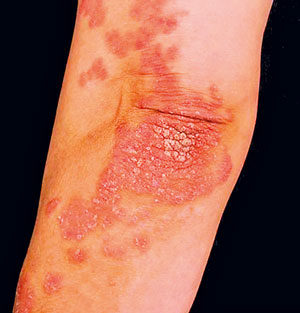29 Dec 2017 - {{hitsCtrl.values.hits}}

 Psoriasis is an inflammatory skin condition where there is an abnormal turnover of epidermal cells. Although it doesn’t affect many people, those inflicted by it have to deal with the discomfort of having their skin shedding process accelerated.
Psoriasis is an inflammatory skin condition where there is an abnormal turnover of epidermal cells. Although it doesn’t affect many people, those inflicted by it have to deal with the discomfort of having their skin shedding process accelerated.
Speaking to Dr. Nayani Madarasinghe, Consultant Dermatologist, Health Capsule learnt that although there is no cure for psoriasis, it is treatable. The skin condition is not contagious and people who suffer from it can go about their normal lives. No dietary changes need to be made regarding psoriasis and the fertility of a person who suffers from it is not affected. Someone with psoriasis can get married, have children and lead a normal life. Treatment only needs to be done when the psoriasis is exhibited.
What is Psoriasis?
Dr. Madarasinghe explained the process of skin shedding and then moved on to explain how the skin condition changes it.

“Usually, in the epidermis of the skin, there are different cell layers. The lowermost layer will proliferate and then cells move upwards. When they move upwards, the cells reshape and lose viability, thus becoming dead cells which will then shed out. This is what usually happens. It takes about 28 days for the cells to go to the topmost layer and then to shed out. But in psoriasis, which is a non-contagious inflammatory skin condition, there is an abnormal turnover of epidermal cells. With psoriasis, this process is accelerated. Now, in a normal person, we don’t see dead cells shedding off, but it happens so fast and aggressively that you can see the dead cells accumulate on the surface and form a scaly skin and will shed more. This is however a result of irregular activity in the body. Not everyone gets it,” Dr. Madarasinghe said.
Types
Dr. Madarasinghe explained the varieties of psoriasis and how it occurs.

“One is chronic psoriasis. It happens when the skin condition has been there for some time. Sometimes it can only involve the palms and soles of the feet. At times, it can involve the scalp only. In some other instances, the entire body can be involved and although you don’t see the specific lesions, the body can turn red, inflame and be scaling. Sometimes you see a different variety where you get small pustules, yellow-coloured pus filled blisters. This is known as pustule psoriasis,” Dr. Madarasinghe said.
Signs and aggravating factors
“You get thick patches on your skin which are lesions. They could be red and have very thick adhered scales. The most common places are the knees, elbows and back of the ear. Sometimes it can only be on the scalp.
“Some people will have nail changes. You get small pits in the nail and they get discoloured and lose connection with the nail bed. Factors aggravating the condition include alcohol consumption, smoking, stress, several drugs and infections.
“Some people with skin psoriasis can also have affected joints. So they can get arthritis. Also, psoriasis is known to be an independent risk factor. People with psoriasis are known to have obesity and cardio vascular diseases,” Dr. Madarasinghe said.
Treatment
According to Dr. Madarasinghe, there is no cure for psoriasis, but it can be managed.
“There are treatments available depending on the severity. Sometimes we give UV treatment, oral drugs and even injections. People don’t have to be on treatment for a long time. When they get an episode, it can be treated. Only a minority of people with psoriasis will have to be on medication for lifelong,” Dr. Madarasinghe said.
23 Dec 2024 55 minute ago
23 Dec 2024 1 hours ago
23 Dec 2024 1 hours ago
23 Dec 2024 3 hours ago
23 Dec 2024 3 hours ago